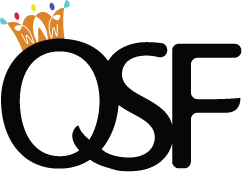
The Addiction and Overdose Epidemic
Millions of Americans are experiencing long-term physical and mental health problems as a result of the misuse and abuse of alcohol, illicit drugs, and prescription medications. The addiction and overdose epidemic has significant negative effects on the entire community, especially loved ones.
What is the difference between substance abuse and addiction? While the two terms are closely related, there are clear differences. According to WebMD, “addiction is substance use that is compulsive and difficult to stop—even in the presence of negative consequences. Chemical changes in the brain make it very difficult to stop use. It is essential to be able to recognize the warning signs of substance use and intervene before it becomes an addiction. “Someone with a substance abuse problem will typically find that it is relatively easy to stop using the substance they are abusing.” View the symptoms of substance abuse and addiction at WebMD.
According to the White House Fact Sheet, “More than four out of five Americans who need treatment for illicit drug use do not receive it.” Drug overdose is at an all-time high, causing wide-spread devastation. “Mental health and substance use disorder services have been under-resourced for far too long, and the COVID-19 pandemic has placed an even greater burden on the system.”
Addiction and Overdose Statistics
19.3 million people aged 18 or older had a substance use disorder in the past year. – SAMHSA
Approximately 14.5 million people age 12 or older had an alcohol use disorder. – SAMHSA
32.1% of U.S. adults with mental illness also experienced a substance use disorder in 2020 (17 million individuals). – NAMI
Mental illness and substance use disorders are involved in 1 out of every 8 emergency department visits by a U.S. adult (estimated 12 million visits). – NAMI
More than 104,000 Americans died due to a drug overdose in the 12-month period ending in September 2021. – White House Fact Sheet March 2022
An average of 128 Americans die every day from an opioid overdose. – CDC
Recovery and Treatment Resources
SAMHSA’s National Helpline, 1-800-662-HELP (4357) is a confidential and free information service, in English and Spanish, for individuals and family members facing mental and/or substance use disorders. This service provides referrals to local treatment facilities, support groups, and community-based organizations.
SAMHSA’s Online Treatment Locator
Addiction Affects the Entire Family: Support for Loved Ones
There are many ways that addiction impacts the entire family. Children and teens often experience long-term effects from witnessing an addiction in their household. Parents may face communication and relationship problems. When one family member has an addiction, all family members may find that their basic feelings of safety and security at home are replaced with overwhelming worry, fear, and concerns about violence. Family members need mental health strategies and support to cope with this devastating situation.
Honor First offers all types of online mental health therapy in all age groups, including substance abuse, addiction, and grief. In addition, Honor First facilitates open conversations with your loved ones for interventions. This may be a one-on-one session with staff or a loving group session. Honor First can also provide referrals to treatment centers.
Finding ways to personally manage your stress is essential for your own well-being when dealing with an addiction crisis in your family. The Queen Shirley Foundation (QSF) offers virtual therapeutic workshops and self-care workshops. The QSF virtual therapeutic art workshops focus on teaching coping skills, stress management, and resilience through art mediums such as drawing, watercolors, and collages.
Latest Blogs
-
Help for Teen Suicide
12 May, 2022 -
How Art Benefits Mental Health
09 March, 2022 -
How Does Divorce Affect Mental Health?
12 May, 2022






